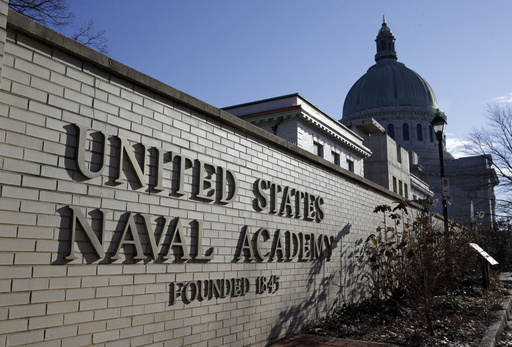BALTIMORE — A federal judge has recently permitted the U.S. Naval Academy to continue factoring race into its admissions strategy, determined that military unity and national security elements exempt it from the same criteria that apply to civilian colleges. The ruling came after a two-week bench trial in September, during which the academy’s legal representatives posited that a diverse military fosters enhanced resilience, effectiveness, and broader respect.
This controversy stems from a lawsuit initiated by Students for Fair Admissions, the same organization that contested affirmative action practices leading to a significant U.S. Supreme Court decision last year. That ruling, established by a conservative majority, broadly restricted the consideration of race and ethnicity within college admissions, affecting longstanding initiatives aimed at increasing access for historically overlooked communities. Nonetheless, the ruling suggested a potential exemption for military institutions, hinting that considerations of national security could influence the evaluation process. Following this, Students for Fair Admissions filed a suit against the Naval Academy in Annapolis to challenge this exemption.
In a comprehensive opinion released on Friday, Judge Richard Bennett dismissed the arguments presented by the group. Judge Bennett, a George W. Bush appointee with over two decades of service in the U.S. Army Reserve and the Maryland National Guard, asserted that the Academy had substantiated a significant national security interest in establishing a diverse officer corps.
“The Academy has linked its use of race to creating an officer corps that reflects the nation it defends,” Bennett observed. “It has also demonstrated that this national security concern is measurable, ensuring that its admissions strategy is finely tuned to meet this requirement.” He acknowledged that demographic factors play a minor role in admissions, clarifying that no applicant is accepted solely based on race. Bennett also pointed out that among the group’s members are four individuals who had previously been denied admission to the Naval Academy.
Following the ruling, President Edward Blum announced intentions to appeal the decision. He expressed, “We hope that the U.S. military academies will eventually be required to adhere to the Supreme Court’s ban on race-based college admissions.”
During the trial, attorneys for Students for Fair Admissions argued that prioritizing candidates from minority backgrounds disproportionately disadvantages qualified white applicants, asserting that military cohesion could stem from other factors, such as training and commanding structures. The organization had also previously sued West Point, yet the Naval Academy case marked the first to reach the trial stage.
Testimonies presented during the proceedings featured insights from current and former high-ranking military personnel, who exhibited a range of perspectives on the impact of race in military environments. Some witnesses contended that evaluations should rely solely on performance metrics, while others underscored the significance of nurturing diversity. Historical perspectives highlighted the military’s complicated legacy regarding racial tensions, which had sometimes escalated into violence and threatened operational readiness.
“The United States military has consistently determined that cultivating and sustaining a qualified and diverse fighting force across all levels is essential to effectiveness in mission,” Bennett affirmed in his ruling.
The Legal Defense Fund, which submitted a brief supporting the Naval Academy, hailed the ruling as a victory. Senior Counsel Michaele Turnage Young commented, “The military understands that a culture of mistrust stemming from unequal opportunity based on race could lead to mission failures and endanger lives. It’s disheartening that some individuals are willing to compromise the safety of our servicemen and jeopardize national security for the sake of exclusion.”
Presently, the admissions process for the Naval Academy evaluates multiple criteria, including academic performance, extracurricular involvement, life experiences, and socioeconomic background, as per court testimonies. Although race is usually absent from considerations, there are instances where it is taken into account in a “limited capacity,” as stated by the academy’s legal team in court documents.


